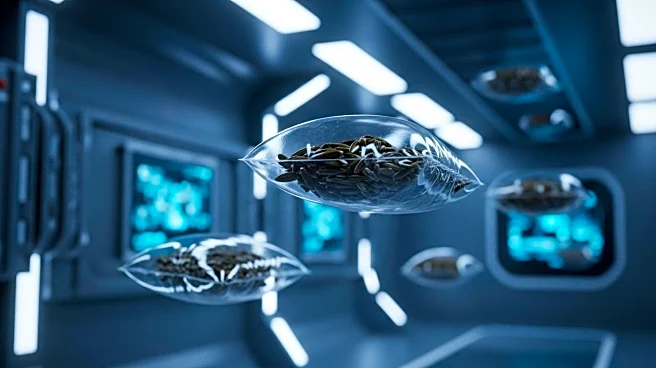What's Happening?
NASA's Crew-11 astronauts have initiated the VEG-03 experiments aboard the International Space Station, focusing on space farming through the use of seed pillows. These experiments involve growing plants such as Wasabi mustard greens, Red Russian Kale, and Dragoon lettuce in a controlled environment using LED lights and a clay-based growing medium. The initiative aims to provide nutritional benefits and psychological support to astronauts during missions. The crew will monitor plant growth, add water as needed, and document the process through photographs. Some of the produce will be consumed by astronauts, while other samples will be frozen and returned to Earth for analysis.
Why It's Important?
The ability to grow fresh food in space is crucial for long-duration missions to the Moon and Mars, as it offers nutritional variety and psychological benefits to astronauts. This research not only supports space exploration but also has potential applications on Earth. Techniques developed for space farming could improve indoor crop cultivation and be adapted for horticultural therapy programs, providing new gardening opportunities for elderly or disabled individuals. NASA's efforts in space agriculture contribute to advancing scientific knowledge and enhancing life both in space and on Earth.
What's Next?
NASA aims to validate various crops for inclusion in astronaut diets during extended space missions. The success of these experiments could lead to more diverse and self-sustaining food production systems in space. As astronauts venture further from Earth, the ability to grow and manage their own food supply will become increasingly important. Future research may focus on optimizing growing conditions and expanding the range of crops suitable for space cultivation.
Beyond the Headlines
The development of space farming techniques highlights the intersection of space exploration and sustainable agriculture. It raises ethical considerations about resource allocation and the potential for technological advancements to address food security challenges on Earth. The collaboration between space scientists and agricultural experts could lead to innovative solutions for global food production issues.









